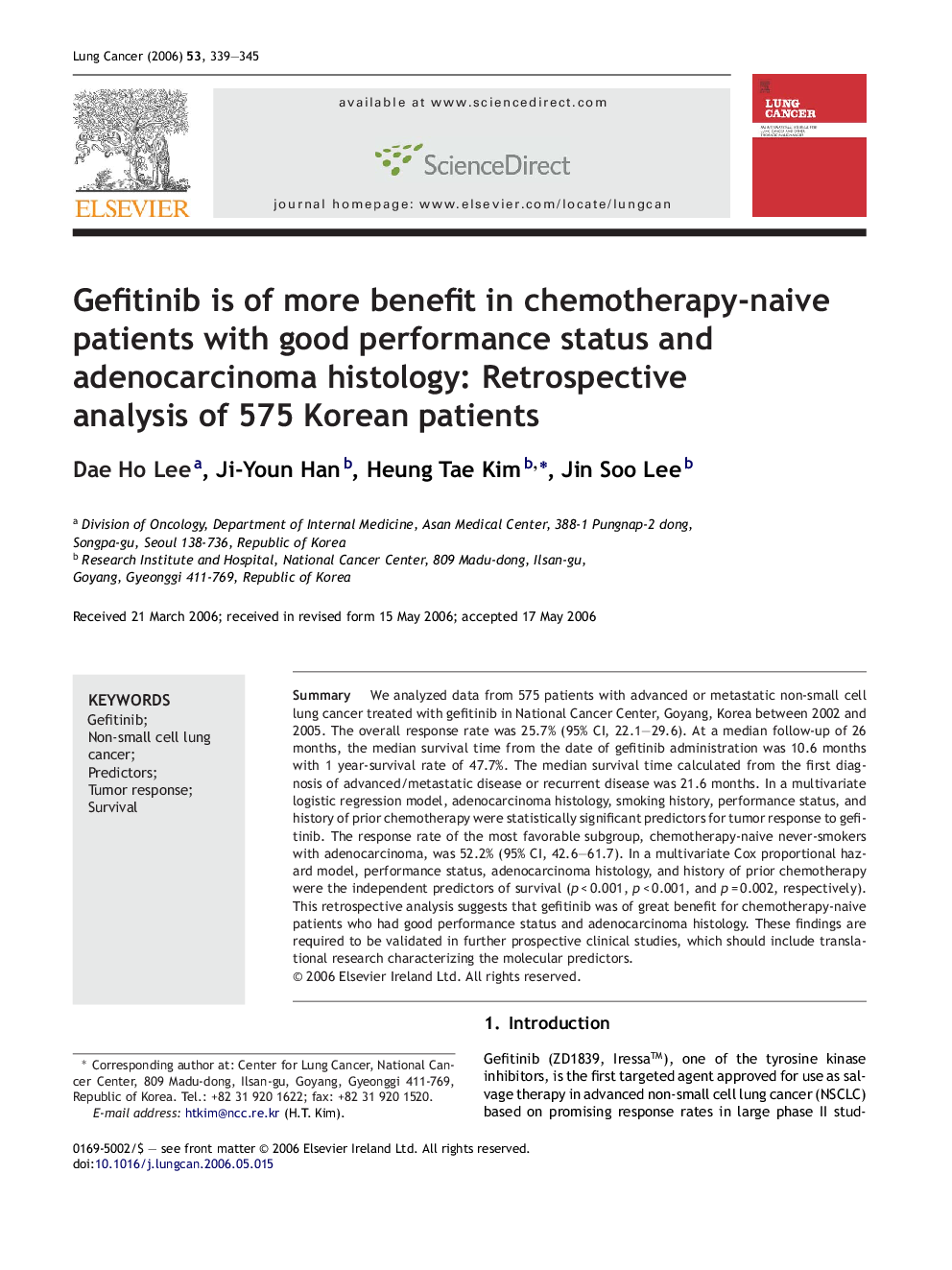| Article ID | Journal | Published Year | Pages | File Type |
|---|---|---|---|---|
| 2144059 | Lung Cancer | 2006 | 7 Pages |
SummaryWe analyzed data from 575 patients with advanced or metastatic non-small cell lung cancer treated with gefitinib in National Cancer Center, Goyang, Korea between 2002 and 2005. The overall response rate was 25.7% (95% CI, 22.1–29.6). At a median follow-up of 26 months, the median survival time from the date of gefitinib administration was 10.6 months with 1 year-survival rate of 47.7%. The median survival time calculated from the first diagnosis of advanced/metastatic disease or recurrent disease was 21.6 months. In a multivariate logistic regression model, adenocarcinoma histology, smoking history, performance status, and history of prior chemotherapy were statistically significant predictors for tumor response to gefitinib. The response rate of the most favorable subgroup, chemotherapy-naive never-smokers with adenocarcinoma, was 52.2% (95% CI, 42.6–61.7). In a multivariate Cox proportional hazard model, performance status, adenocarcinoma histology, and history of prior chemotherapy were the independent predictors of survival (p < 0.001, p < 0.001, and p = 0.002, respectively). This retrospective analysis suggests that gefitinib was of great benefit for chemotherapy-naive patients who had good performance status and adenocarcinoma histology. These findings are required to be validated in further prospective clinical studies, which should include translational research characterizing the molecular predictors.
